

It is a cold, dark night when
Beowulf
After hearing this great tale, King Hrothgar
From this speech, parallels can be drawn between Beowulf and Hrothgar. Hrothgar states that he "ruled the Ring-Danes for a hundred half-years" (49), and in the second part of the tale, it is revealed that Beowulf also reigns as a wise King for fifty years. In his speech, Hrothgar's reference to the "loaned body" and the "earl's ancient treasure" directly relate to "The Last Survivor's Speech" in the second part of Beowulf.
It is this later revelation that connects Beowulf with "The Wanderer."
Another important part of this section is the number of Christian references. Hrothgar warns Beowulf to guard himself "against that wickedness [called pride] . . . and [to] choose better--eternal gains" (49), as death will eventually defeat him. Hrothgar is a great King because he is the opposite of Heremod. He rules his kingdom wisely and gives his subjects gifts. Even great men like Hrothgar, however, must be careful not to fall into selfish traps, allowing pride to rule them.
Pride and gift giving are important concepts in the Christian religion and their role
in the epic of Beowulf should not be overlooked.
Celtic
Christianity
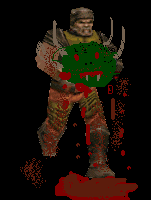 enters the great hall carrying the head of the treacherous Grendel
enters the great hall carrying the head of the treacherous Grendel
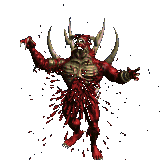 .
He has defeated both the beast and his mother, so the Danes rejoice upon
seeing their hero alive. They all listen eagerly as Beowulf tells his amazing
tale of glory. He credits his success to God, saying that he would not have
survived "if God had not guarded" him (Norton 48).
Hrunting,
the sword he has brought to battle, has failed him because Grendel's mother has bewitched all swords so that they can not harm her. Luckily, fate has led him to "see hanging on the wall a fair, ancient great sword" (48)
.
He has defeated both the beast and his mother, so the Danes rejoice upon
seeing their hero alive. They all listen eagerly as Beowulf tells his amazing
tale of glory. He credits his success to God, saying that he would not have
survived "if God had not guarded" him (Norton 48).
Hrunting,
the sword he has brought to battle, has failed him because Grendel's mother has bewitched all swords so that they can not harm her. Luckily, fate has led him to "see hanging on the wall a fair, ancient great sword" (48)
 with which he defeats the powerful woman. Once he has slain the monster, the sword mysteriously melts, leaving him with only the golden hilt to bring back to his Lord.
with which he defeats the powerful woman. Once he has slain the monster, the sword mysteriously melts, leaving him with only the golden hilt to bring back to his Lord.
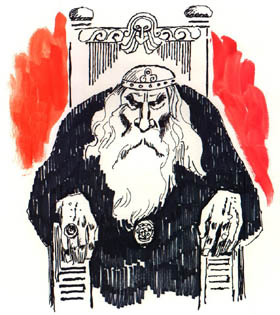 speaks. He is especially pleased with Beowulf's success, as he no longer has to live in fear for his kingdom. Through his speech, he congratulates Beowulf and advises him with words of wisdom. Hrothgar cautions the almighty warrior to beware of his pride by not allowing it to swell, due to his glory. He tells a tale about the notorious King Heremod who is blessed with everything--money, power, strength, and glory:
speaks. He is especially pleased with Beowulf's success, as he no longer has to live in fear for his kingdom. Through his speech, he congratulates Beowulf and advises him with words of wisdom. Hrothgar cautions the almighty warrior to beware of his pride by not allowing it to swell, due to his glory. He tells a tale about the notorious King Heremod who is blessed with everything--money, power, strength, and glory:
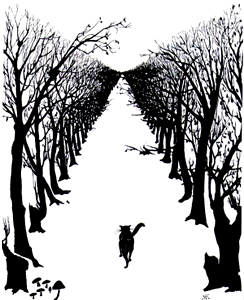 Click on the picture to the right for a closer look at the
passages that clearly show the parallel between Beowulf and "The
Wanderer."
Click on the picture to the right for a closer look at the
passages that clearly show the parallel between Beowulf and "The
Wanderer."
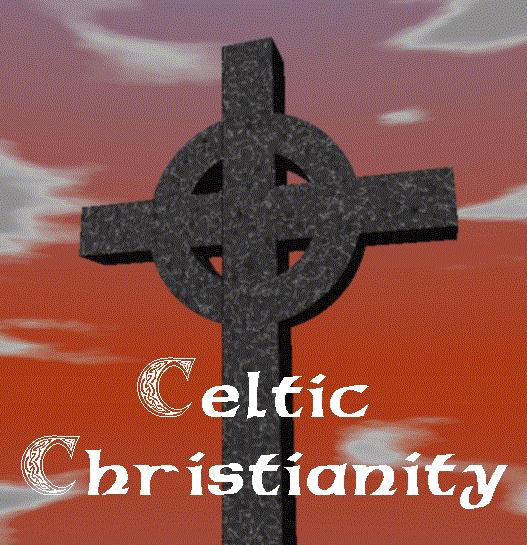 had a tremendous effect on the writing of the early medieval period.
had a tremendous effect on the writing of the early medieval period.
The conclusion of this section is brief. Hrothgar thanks Beowulf for defeating Grendel, and the celebration continues. After Beowulf feasts, he rests well in preparation for his journey home. At daybreak, the thanes rise "eager to set out again for their people" (50). Beowulf returns Hrunting to Unferth, thanking him for the loan. He then goes to greet King Hrothgar before setting out for his homeland.
